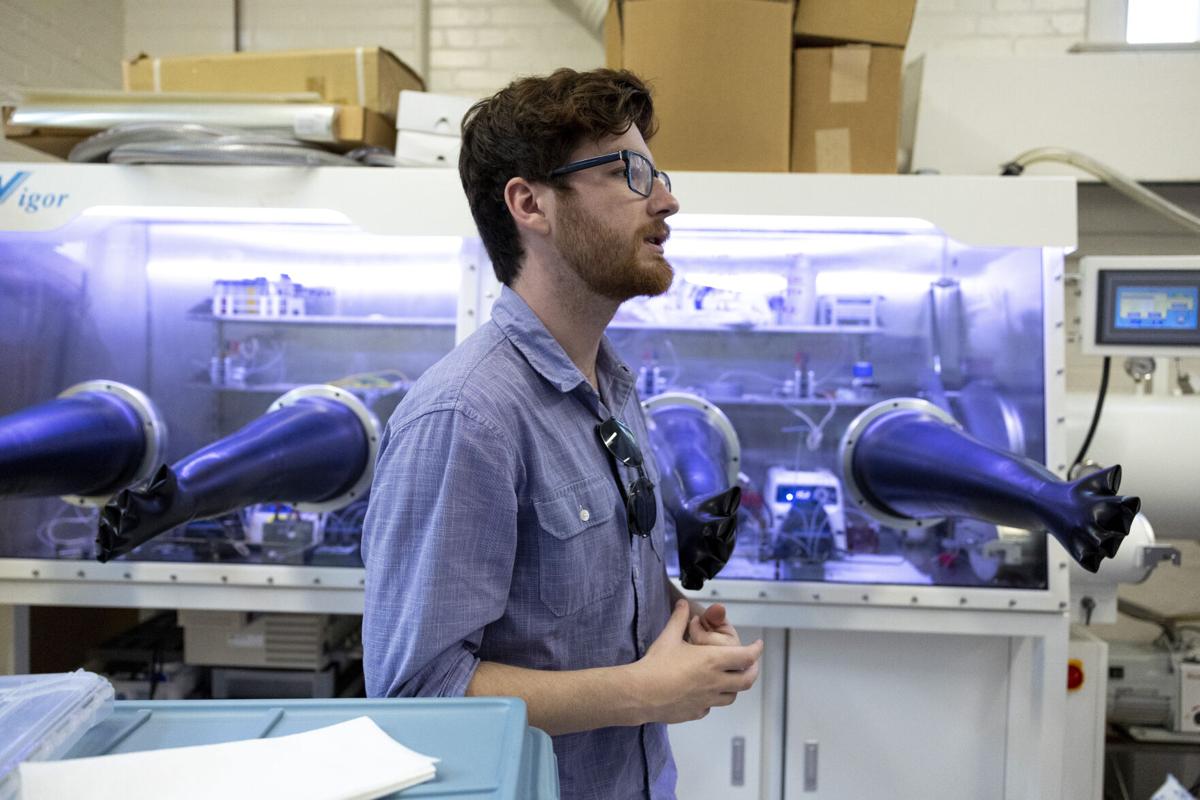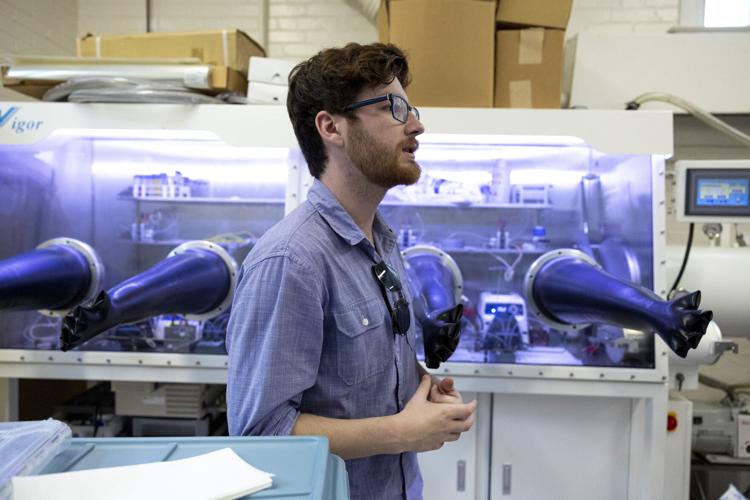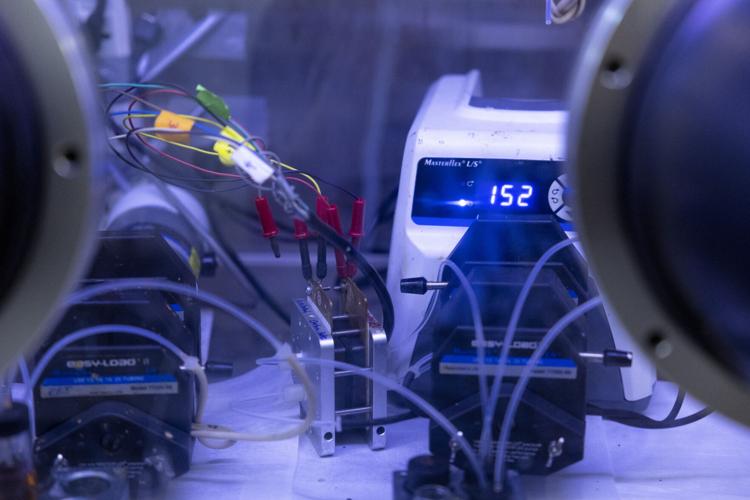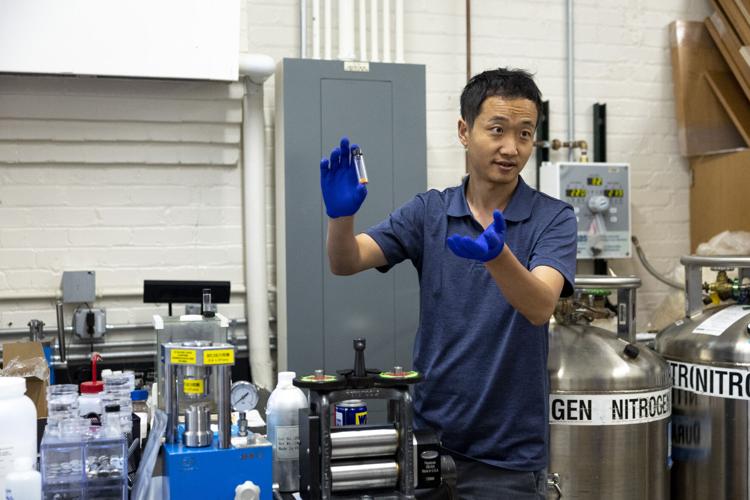A Madison startup is making a battery that could safely store energy for a more extended period of time from sources like solar and wind.
Flux XII launched in 2021 and is the brainchild of Patrick Sullivan, CEO and graduate of UW-Madison’s Department of Materials Science and Engineering, and co-founder and UW-Madison assistant professor Dawei Feng.
Over the last few years, they have developed and studied a prototype battery that can store electricity from renewable energy sources much longer than current batteries on the market, according to a research paper authored by Sullivan, Feng and others.
Other, similar batteries on the market “just waste that excess energy,” Sullivan explained.
The research paper has been published by Nature Energy, a monthly peer-reviewed scientific journal, and Advanced Energy Materials, a peer-reviewed journal covering energy related research.
People are also reading…

A prototype of the Flux XII battery is being tested at the Materials Science and Engineering building on the campus of UW-Madison.
If the sun isn’t shining or the wind isn’t blowing, Flux XII’s battery could still keep the lights on, Sullivan explained, and potentially help people and companies go completely off the utility grid, greatly reducing their energy costs.
The battery, which can produce one kilowatt of energy, stores energy using organic salts that have been developed by Sullivan and Feng. The salts are dissolved in a water solution and pumped through the device to ensure a continuous flow of electricity. The prototype could eventually fit together with others like a puzzle. Depending on the energy needs of any given building, the idea is to be able to stack the batteries on top of one another or side by side, he said.

Scientific adviser and co-founder Professor Dawei Feng describes how the organic salts used in the the Flux XII battery prototype are made.
The batteries that are currently on the market that power things like wind turbines and solar panel setups include lithium-ion batteries and other flow batteries, the researchers said. Lithium-ion batters can store some renewable energy but pose a fire hazard and come with a complicated supply chain.
Other flow batteries use an expensive and scarce metal known as vanadium. Even more flow batteries use cheaper metals like iron, zinc, bromine and chromium. They have been showcased on solar panel grids, the duo explained, but they have failed to achieve what their battery could.
It’s the hope that Flux XII’s battery could last 10-20 years, Feng said.
Within the next year, Flux XII plans to hire its first employee and chief scientific officer. Sullivan said that more study is needed on large-scale versions of the battery.
The startup is also awaiting patent approval of its battery concept from the U.S. Patent and Trademark Office. Sullivan said the startup applied with the help of the the Wisconsin Alumni Research Foundation in 2021.
After that, Flux XII wants to open a lab in Madison.
“Eventually we are going to open up manufacturing plants,” Sullivan said, adding that Wisconsin is a potential location. “We want to build and sell this battery.”
"Eventually we are going to open up manufacturing plants. We want to build and sell this battery."
Patrick Sullivan, Flux XII CEO



































